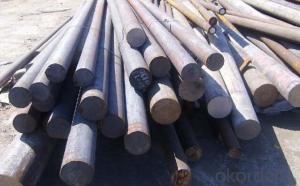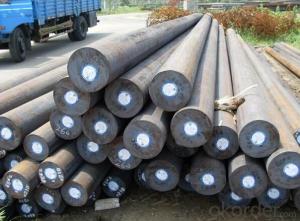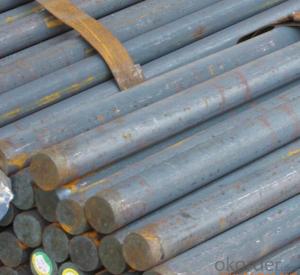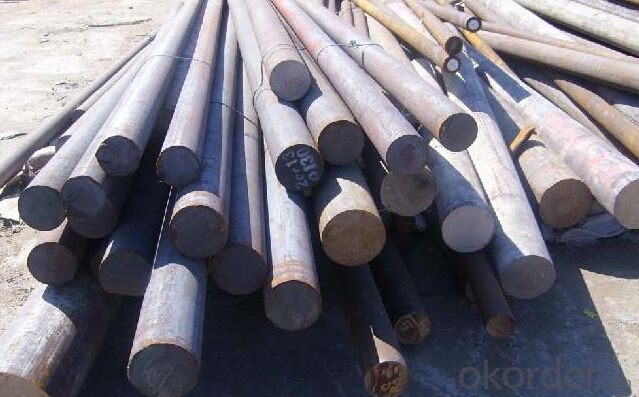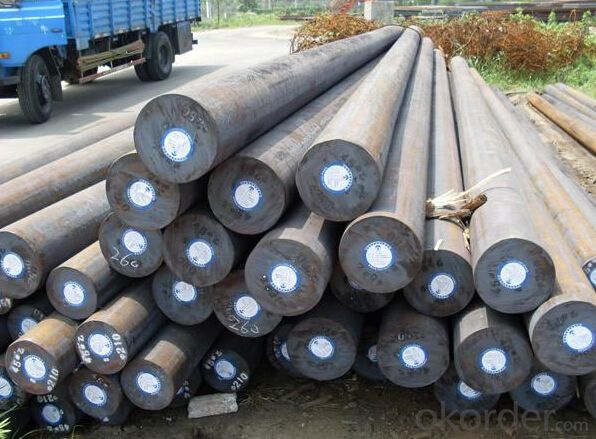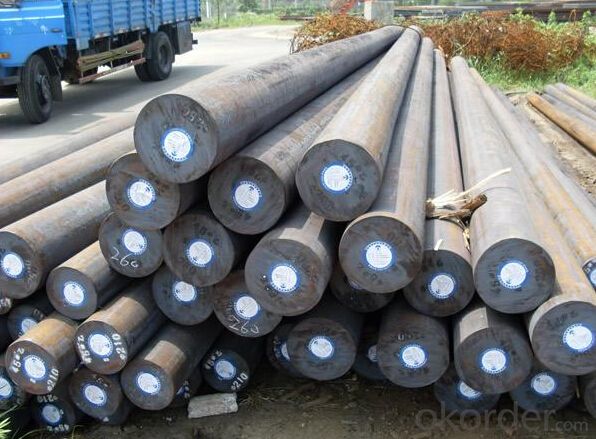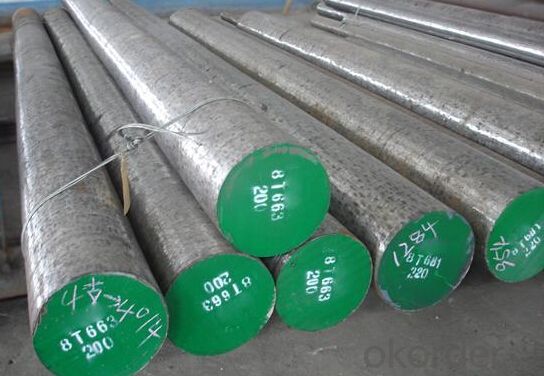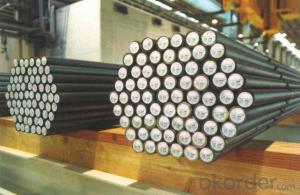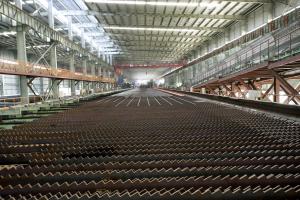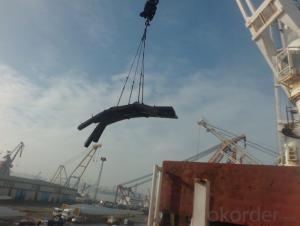Hot Rolled Carbon Steel Round Bar with high quality
- Loading Port:
- Tianjin
- Payment Terms:
- TT OR LC
- Min Order Qty:
- 3 m.t.
- Supply Capability:
- 10000 m.t./month
OKorder Service Pledge
OKorder Financial Service
You Might Also Like
Specification
Carbon Steel Round Bar with high quality
Name | Carbon Steel Round Bar |
Shape | Round Bar/Square Bar/Flat Bar/Plate/Wire |
Standard | GB/ASTM/SAE/AISI/DIN/JIS/EN/BS |
Surface Treatment: | Black/Peeling/Polished/Machined |
Delivery Condition: | Hot Rolled or Forged/Peeled or Black Surface |
Test | SGS/UT 100% Elements Testing |
Certificate: | ISO/Mill Certificate |
Service: | 24 hours online service / |
more than 20 years trading and manufacture | |
Quality Assurance: | the third party inspection, such as SGS, BV, TUV…etc. is acceptable |
Packaging Details: | seaworthy packaging or as per customer's packing instruction |
Specification
Description | Carbon Steel Rod/Carbon Steel Bar,carbon steel rod,carbon steel shaft,mild steel bar, mild steel shaft,ms bar | |
Material | ASTM | 1005,1006,1008,1010,1015,1020,1025,1030,1035,1040,1045,1050,1055,1060,1065,1070,1080,1084,1016,1022 |
DIN | Ck10,Ck15,Ck22,Ck25,Ck30,Ck35,Ck40,Ck45,Ck50, 30Mn4,40Mn4 | |
Standard | GB/T799,ASTM A29,A108,A321,A575,BS970,DIN1652,JIS G4051 | |
Section shape | Round | |
Length | As your required | |
| Carbon steel rod applies to chemical industry, shipping industry,manufacturing industry,construction, | |
Application | decorate Industry,electric power,pump shafts, sanitary wares,furniture handles,boiler,high temperature resistant,low temperature resistant, corrosion resistant. | |
Packaging & Delivery
Packaging Detail | Sea worthy packing /as per customer's packing instruction |
Delivery Detail | 15 ~ 40 days after receiving the deposit |
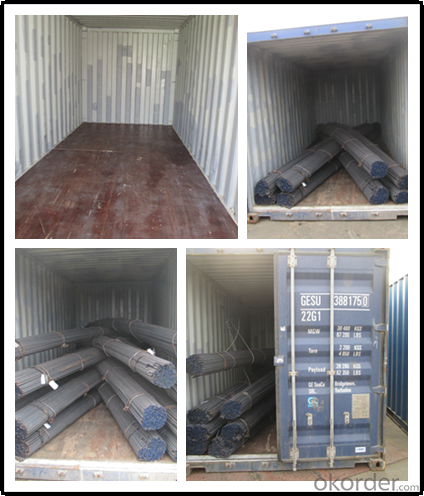
Product Show
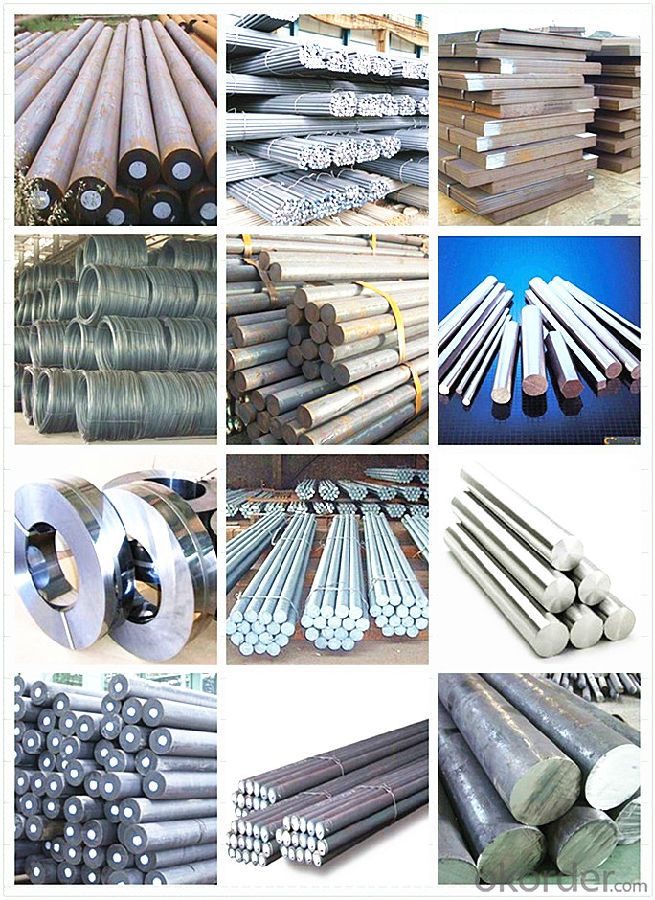
Workshop
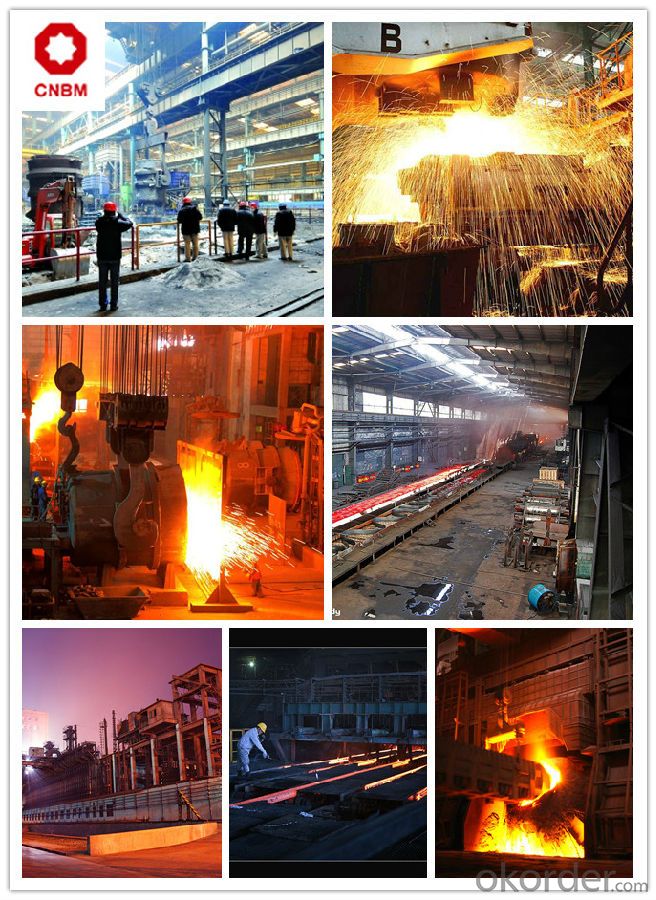
FAQ
Are you a trading company or manufacturer? | Manufacturer |
What’s the MOQ? | 3 metric ton |
What’s your delivery time? | 15-35 days after downpayment received |
Do you Accept OEM service? | Yes |
what’s your delivery terms? | FOB/CFR/CIF |
What's the Payment Terms? | 30% as deposit,70% before shipment by T/T |
Western Union acceptable for small amount. | |
L/C acceptable for large amount. | |
Scrow ,Paybal,Alipay are also ok | |
Why choose us? | Chose happens because of quality, then price, We can give you both. |
Additionally, we can also offer professional products inquiry, products knowledge train (for agents), smooth goods delivery, excellent customer solution proposals. | |
What's your available port of Shipment? | Main Port, China |
What’s your featured services? | Our service formula: good quality+ good price+ good service=customer's trust |
Where are your Market? | Covering more than 160 countries in the world |
- Q: How does stainless steel contribute to the automotive industry?
- Stainless steel contributes to the automotive industry by providing durability, corrosion resistance, and aesthetic appeal to various parts and components. It is commonly used in exhaust systems, engine components, body panels, and trim pieces, ensuring longevity and maintaining the integrity of vehicles even in harsh conditions.
- Q: How does special steel perform in high-pressure applications?
- High-pressure applications benefit greatly from the exceptional performance of special steel. This steel is specifically designed to endure extreme pressure conditions, making it the perfect choice for industries that require reliable and durable materials for their operations. One of the main advantages of special steel is its high tensile strength, which allows it to handle immense pressure without deforming or failing. This strength is achieved through the use of alloying elements and heat treatment processes that enhance the steel's structural integrity. As a result, special steel can withstand the intense forces exerted on it in high-pressure environments, ensuring the safety and efficiency of the equipment or structures in which it is used. Furthermore, special steel shows excellent resistance to corrosion and oxidation, further enhancing its suitability for high-pressure applications. This resistance helps maintain the steel's structural integrity, preventing any weakening or degradation that could compromise its performance under pressure. Additionally, special steel's resistance to corrosion ensures that it can endure harsh environments, such as those found in the oil and gas extraction, chemical processing, or power generation industries. Another advantage of special steel in high-pressure applications is its ability to retain its mechanical properties even at elevated temperatures. This property is crucial in industries where high temperatures are involved, such as aerospace, nuclear power, or steam generation. The steel's high-temperature strength and stability enable it to withstand the combination of high pressure and elevated temperatures, ensuring reliable performance and long-term durability. To summarize, special steel is an outstanding choice for high-pressure applications due to its high tensile strength, resistance to corrosion and oxidation, as well as its ability to maintain its mechanical properties at elevated temperatures. Its exceptional performance in these demanding conditions makes it a reliable and durable material for industries that operate in high-pressure environments.
- Q: Can special steel be used in the sporting goods manufacturing industry?
- Yes, special steel can be used in the sporting goods manufacturing industry. Special steel, with its unique properties such as high strength, durability, and corrosion resistance, can be utilized in the production of various sporting goods such as golf clubs, baseball bats, tennis rackets, and bicycle frames. The use of special steel in these products enhances their performance, increases their lifespan, and provides better overall quality to athletes and sports enthusiasts.
- Q: What are the emerging trends in the special steel industry?
- Some of the emerging trends in the special steel industry include the growing demand for advanced high-strength steels (AHSS) in automotive applications due to their lightweight and high performance properties. Additionally, there is an increasing focus on sustainability and eco-friendly manufacturing processes, leading to the development of cleaner production methods and the use of recycled materials. Furthermore, advancements in technology and innovation are driving the adoption of specialty steels in sectors such as aerospace, energy, and construction.
- Q: What are the requirements for special steel used in automotive parts manufacturing?
- The requirements for special steel used in automotive parts manufacturing include high strength, durability, and resistance to impact and wear. It should also have excellent formability and weldability for easy shaping and joining processes. Additionally, the steel must meet specific standards for chemical composition, heat treatment, and surface finish to ensure optimal performance and safety in automotive applications.
- Q: Can special steel be used for food processing equipment?
- Yes, special steel can be used for food processing equipment. Special steel, often referred to as stainless steel, is commonly used in the food industry due to its corrosion resistance, durability, and hygienic properties. It is non-reactive and does not leach any harmful substances into the food, making it a safe and reliable choice for various food processing applications.
- Q: How does special steel contribute to the automotive noise reduction?
- Special steel contributes to automotive noise reduction in several ways. Firstly, it is durable and strong, allowing for the construction of thinner and lighter components. This reduces the overall weight of the vehicle, resulting in reduced road and engine noise. Additionally, special steel has excellent vibration-damping properties, which helps absorb and minimize noise generated by the engine, suspension, and other moving parts. The use of special steel in the design of automotive structures and panels also helps reduce noise transmission from the outside environment into the cabin, providing a quieter and more comfortable driving experience for passengers.
- Q: What are the different methods of preventing galvanic corrosion in special steel?
- There are several methods of preventing galvanic corrosion in special steel. Some common approaches include using protective coatings or barriers such as paints, varnishes, or corrosion-resistant alloys. Another method is cathodic protection, where a sacrificial anode is connected to the steel to attract corrosion instead. Additionally, controlling the environment by reducing moisture or adding inhibitors can also help prevent galvanic corrosion in special steel.
- Q: What are the common heat treatment methods used for special steel?
- There are several common heat treatment methods used for special steel to improve its mechanical properties and enhance its performance. Some of these methods include: 1. Annealing: This process involves heating the steel to a specific temperature and then cooling it slowly to relieve internal stresses and create a refined microstructure. Annealing helps to improve the machinability and ductility of the steel. 2. Normalizing: Normalizing is a heat treatment method that involves heating the steel to a temperature above its critical point and then cooling it in still air. This process helps to refine the grain structure of the steel, improve its toughness, and enhance its strength. 3. Quenching: Quenching is a rapid cooling process that involves immersing the steel in a quenching medium, such as water, oil, or polymer. This method is used to increase the hardness and strength of the steel by forming a hard martensitic structure. However, quenching can also introduce internal stresses and reduce the steel's toughness, so it is often followed by tempering. 4. Tempering: Tempering is a heat treatment method that involves reheating the quenched steel to a specific temperature and then cooling it gradually. This process helps to relieve internal stresses, reduce hardness, and improve the toughness and ductility of the steel. Tempering also helps to enhance the steel's resistance to brittle fracture. 5. Austempering: Austempering is a heat treatment method that involves quenching the steel to a temperature just above its martensitic transformation range and then holding it at this temperature until the austenite transforms into bainite. This process produces a unique microstructure that provides a combination of high strength and good toughness. 6. Martempering: Martempering is similar to austempering, but the steel is quenched to a temperature just below its martensitic transformation range and then held at this temperature until the transformation is complete. Martempering produces a microstructure with improved strength and toughness compared to conventional quenching. These heat treatment methods are commonly used for special steel to tailor its properties to specific applications and requirements. The choice of method depends on factors such as the desired mechanical properties, the steel's composition, and the intended use of the final product.
- Q: Can special steel be welded?
- Yes, special steel can be welded. However, the specific welding process and techniques may vary depending on the type of special steel being used. It is important to have a good understanding of the particular steel's composition and properties to ensure proper welding procedures are followed.
Send your message to us
Hot Rolled Carbon Steel Round Bar with high quality
- Loading Port:
- Tianjin
- Payment Terms:
- TT OR LC
- Min Order Qty:
- 3 m.t.
- Supply Capability:
- 10000 m.t./month
OKorder Service Pledge
OKorder Financial Service
Similar products
Hot products
Hot Searches
Related keywords
